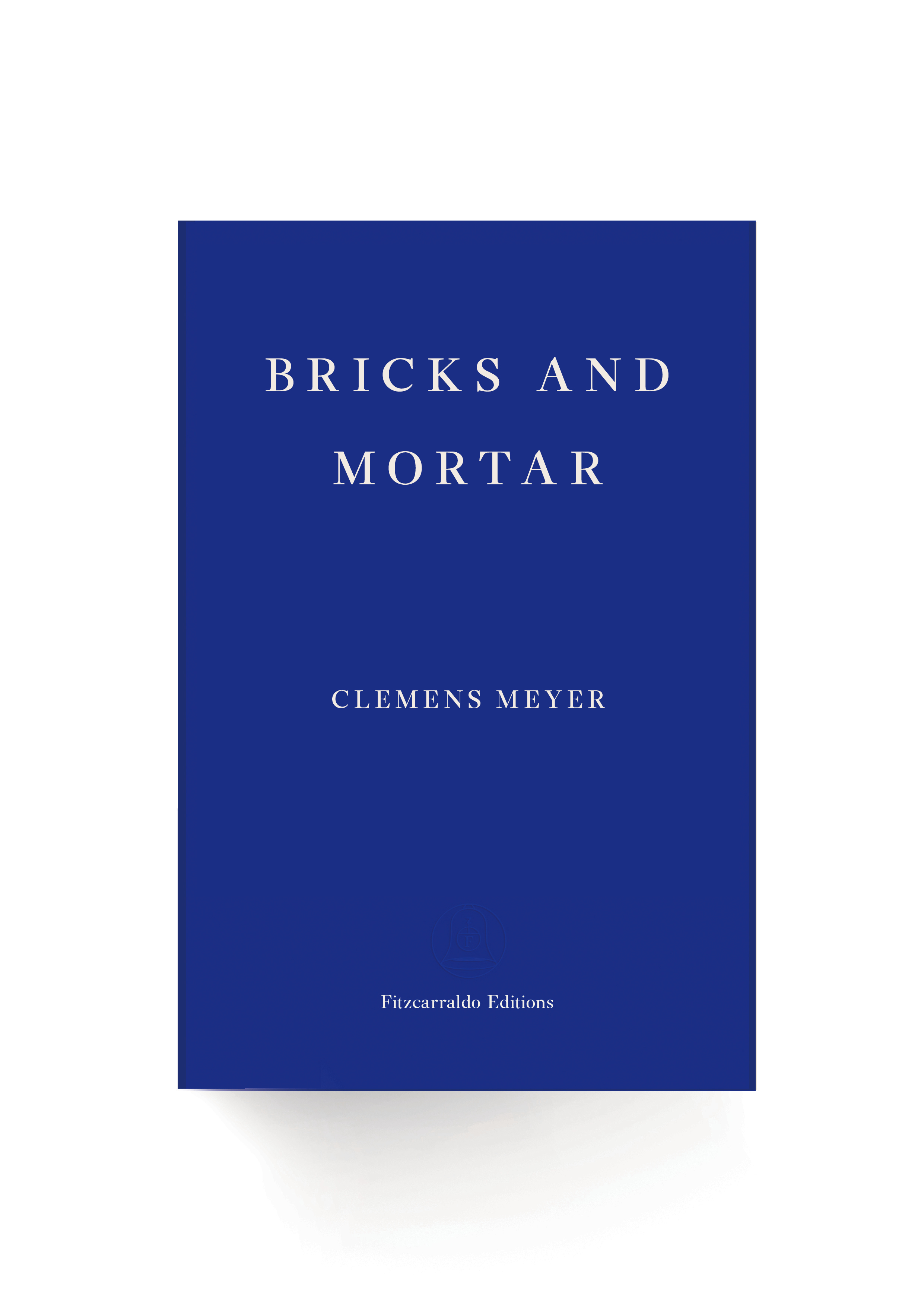
Translating a book title is rarely an easy feat. Think of Die Verwandlung, rendered as either Metamorphosis or The Metamorphosis – do we need that definite article or not? The first two translations into German of Crime and Punishment were entitled Raskolnikow, followed by many called Schuld und Sühne (meaning something like “guilt and atonement”), then in the 1920s a couple of Verbrechen und Strafe (“crime and punishment”), then a spate of either Raskolnikow or Schuld und Sühne or variations on the two, and back to Verbrechen und Strafe in Svetlana Geier’s most recent iteration from 1994. The shorter and more meaningful a statement, the more difficult it can become to capture it faithfully in another language. And there are few short statements that hold more meaning than book titles.
Clemens Meyer’s Im Stein is one of those conundrums. It’s a long novel, 654 pages in English, with a short title. Two words, two strong beats, not a common phrase but immediately clear. The literal meaning is easily rendered: in the stone. But to my mind, the obvious choices rock and stone are tainted words in English, hackneyed and dulled by overuse in popular culture:
The Sword in the Stone
The Rolling Stones
Rolling Stone
Like a Rolling Stone
Stone cold sober
Sticks and stones
A stone’s throw
Between a rock and a hard place
Rock ‘n’ roll
Dwayne “The Rock” Johnson
Rock around the Clock
Punk rock
Dad rock
Brighton Rock
Crocodile Rock
Jingle Bell Rock
And so on, very possibly ad infinitum.
I knew I didn’t want either of those words to anchor my translation, to drag it down from vaguely mystical to banal. But what to do? The novel plays on different kinds of stone – the bedrock of the city in which it’s set, gemstones, brick walls – all of which can be called “stein” in German, at least in the elastic way that Meyer uses language. For a while, the working title was Hearts Like Diamonds, a phrase used frequently in the book to sum up women working in prostitution. I liked that it brought those women into sharp focus, but it had the distinct disadvantage of sounding like a romance novel. Which the book is not, by a long shot.
One of the less literal meanings with which Meyer imbues the word Stein is that of real estate. If the novel has a main character other than the city itself and the rock being drilled into beneath it, then it’s AK, a football hooligan turned property magnate who lets apartments to prostitutes. It’s his move into “bricks and mortar” that takes him from providing security services for the sex trade – muscle – to providing shelter and infrastructure – stone, if you like. And that was the mental leap I needed. Once I hit on it, I went back through the translation to sow seeds for my title, adding flourishes to the prose where I felt it could take it. This is the kind of writing that can take it, so we now have sentences like this:
The music echoes across the bricks and mortar, through the rock and stones.
Or like this:
And if you think back to those years between time and stream, between bricks and mortar, between rock and hard place, there’s no way back and that’s a good thing too, even though things are hotting up again now; there weren’t any apartments or luxury girls back then, or as good as none.
Or like this:
The markets and marketplaces are becoming more and more linked, steel and concrete town halls, the meat markets expanding, the bricks and mortar, sticks and stones, the rock growing, in a red-lit circle where everything’s linked, the rubbish truck, the fat woman, the Coke, the Viagras, the blockers, uppers and downers, lost cats, the right to sexual self-determination, scraps of memory like old police badges, the Angels on their motorbikes, peat mosses, flyovers, sixty-six municipal brothels in 1865, trade chronicles, he burrows in the old files, real estate on silver strings leading all the way to Italy, and the fall of the real-estate boss Silvio Lübbke, three bullets, boom, boom, Dead Peepers Alley, houses for pocket money, clues, clues, the country air so clean and pure, soon they’ll be building here but we’ll stop the diggers, the question is, who brings three bodies out to this mire, this swamped puddle, where everyone knows they won’t decompose, when you can dig holes in the sandy ground of the heath or drive out to forest lakes like the ‘Blue Eye’, and there must be anglers there who discover the remotest of lakes, the woods arching around the north-eastern belt of the suburbs and incorporated villages to the south, all of it flat as a pancake.
Clemens himself still isn’t keen because there are other books with the same title, so this piece is partly a defence of my choice. But I stand by it, for several reasons. Firstly, the stone is still there under the surface, even though it’s now clearly manmade, one meaning standing in for all the others. The phrase is something I can imagine all of the book’s characters using, something earthy and real. More important though is the sound: it still has two beats, Bricks and Mortar. Still short and sharp – a trochaic rhythm, I’m told. And when I pronounce my title – and it feels like my title, because I had to fight for it a little bit – it comes out in my accent, which is from London, and I hear a secret echo of rhyming slang concealing one woman, at least. There’s a daughter gone missing in the book, too, and so my title is for her.

